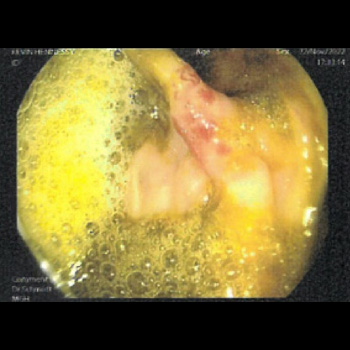Keywords
Bleeding, Anaemia, Bevacizumab, Hereditary Haemorrhagic Telangiectasia, HHT
Abstract
Introduction: Hereditary haemorrhagic telangiectasia (HHT) is a rare multi-organ vascular disease. It is characterised by mucocutaneous telangiectasia, epistaxis, and arteriovenous malformations. Some 70% of patients with HHT are thought to have issues with gastrointestinal (GI) bleeding. Traditional management of GI bleeding in HHT includes monitoring for iron deficiency anaemia, iron replacement, antifibrinolytic therapy and control of identifiable bleeding sites with argon photocoagulation during gastrointestinal endoscopy. Blood transfusion may also be required.
Case description: Our case describes a man in his 40s with confirmed HHT, with transfusion-dependent anaemia secondary to GI bleeding. He was commenced on fortnightly bevacizumab (5 mg/kg) for 12 weeks in an attempt to reduce his blood transfusion requirement and manage his anaemia. In the months prior to starting bevacizumab, our patient’s transfusion requirement ranged from 3–5 units of packed red cells per month to maintain an Hb >8 g/dl. He had a marked improvement in his symptoms within the first month of treatment and did not require any further blood transfusion during the three months of treatment. He was given one further IV iron infusion in the final month of his 3-month bevacizumab treatment and did not experience any adverse side effects from bevacizumab.
Discussion: HHT results from alterations to genes which encode proteins involved in blood vessel formation. This provides the rationale for using anti VEGF drugs such as bevacizumab. Current evidence for this treatment approach is limited.
Conclusion: Bevacizumab can be an effective treatment option in patients with HHT refractory to traditional management.
References

Views: 329
HTML downloads: 39
PDF downloads: 237
Published:
2023-12-22
Issue:
2024: Vol 11 No 1
(view)










